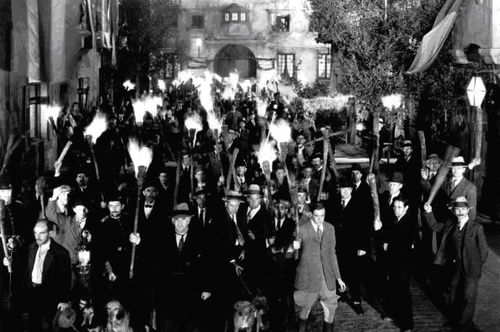The names of many desperadoes struck fear into the hearts of saloon patrons during the late nineteenth century – Billy the Kid, Jesse James, Doc Holiday, the Younger Brothers. In Wichita, Kansas, at the turn of the century, a six-foot, 175 pound, hatchet-wielding woman terrorized would-be tipplers.
 Carrie Nation had led a lifelong battle against the evils of alcohol, preaching abstinence until she was blue in the face. Her first husband had a drinking problem that eventually destroyed their marriage and killed him in the bargain. Nation then married a minister from Texas. She and her new husband moved to Medicine Lodge, Kansas, in 1889, when it was still part of the wild and woolly frontier. With her husband’s blessing, Nation began to battle the dark forces of drunkenness with a new vigor, traveling throughout the state of Kansas with a message of temperance.
Carrie Nation had led a lifelong battle against the evils of alcohol, preaching abstinence until she was blue in the face. Her first husband had a drinking problem that eventually destroyed their marriage and killed him in the bargain. Nation then married a minister from Texas. She and her new husband moved to Medicine Lodge, Kansas, in 1889, when it was still part of the wild and woolly frontier. With her husband’s blessing, Nation began to battle the dark forces of drunkenness with a new vigor, traveling throughout the state of Kansas with a message of temperance.
But her dandy rhetoric against demon rum fell on the deaf ears of the more depraved people of Kansas. Finally on December 28, 1900, Nation took up her little hatchet in an effort to to get their attention. Storming into the barroom like a runaway locomotive, Nation hacked away with a fervor that sent grown men scurrying for the nearest exit – furniture, mirrors, paintings all succumbed to her moral righteousness.
Since the sale of alcohol was already illegal in Kansas, Nation felt justified in enforcing the laws that the more timid officials were not. She felt that chopping up saloons was her duty as a law-abiding citizen. Local law authorities did not usually agree, and she served her share of jail time.
Although Nation’s handiness with an ax brought her national fame, her cause didn’t really catch on – at least not until several years after her 1911 death when, in 1920, the U.S. undertook the “noble experiment” of prohibition.



